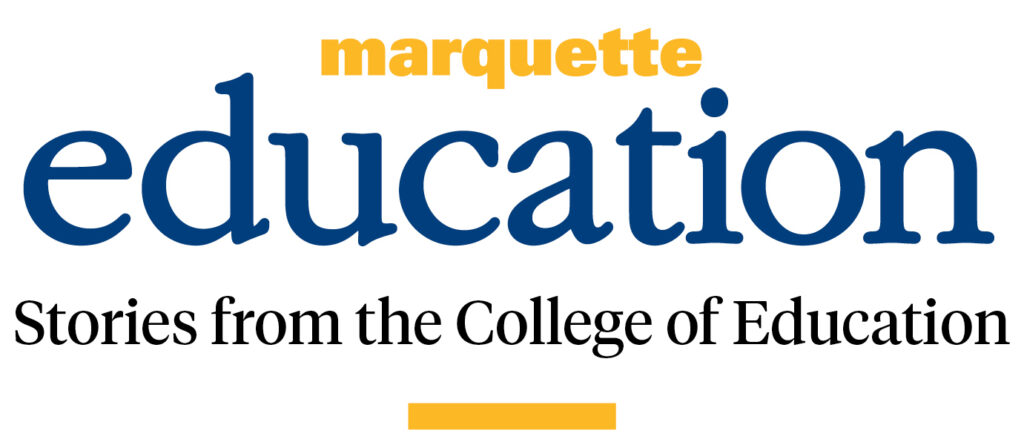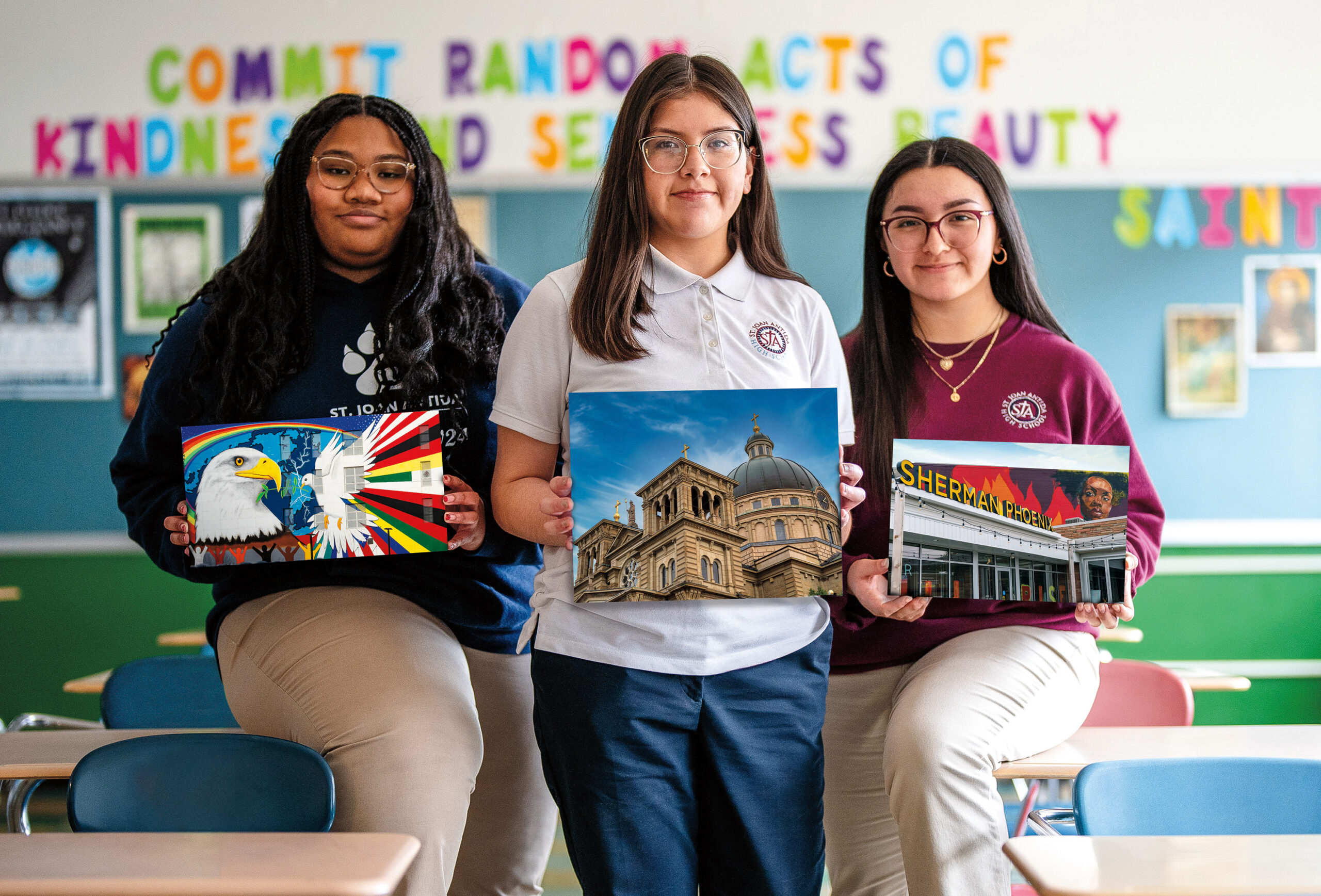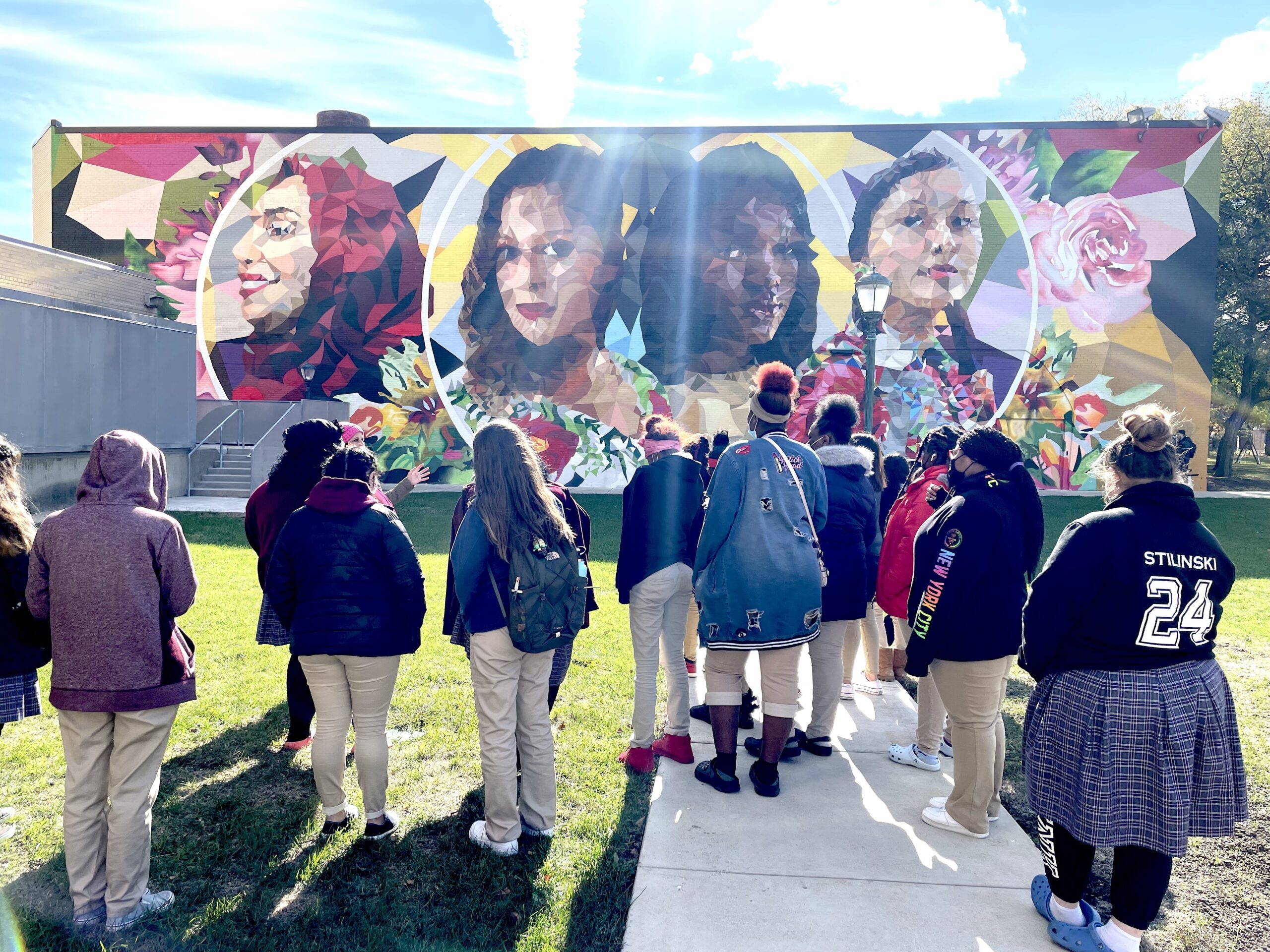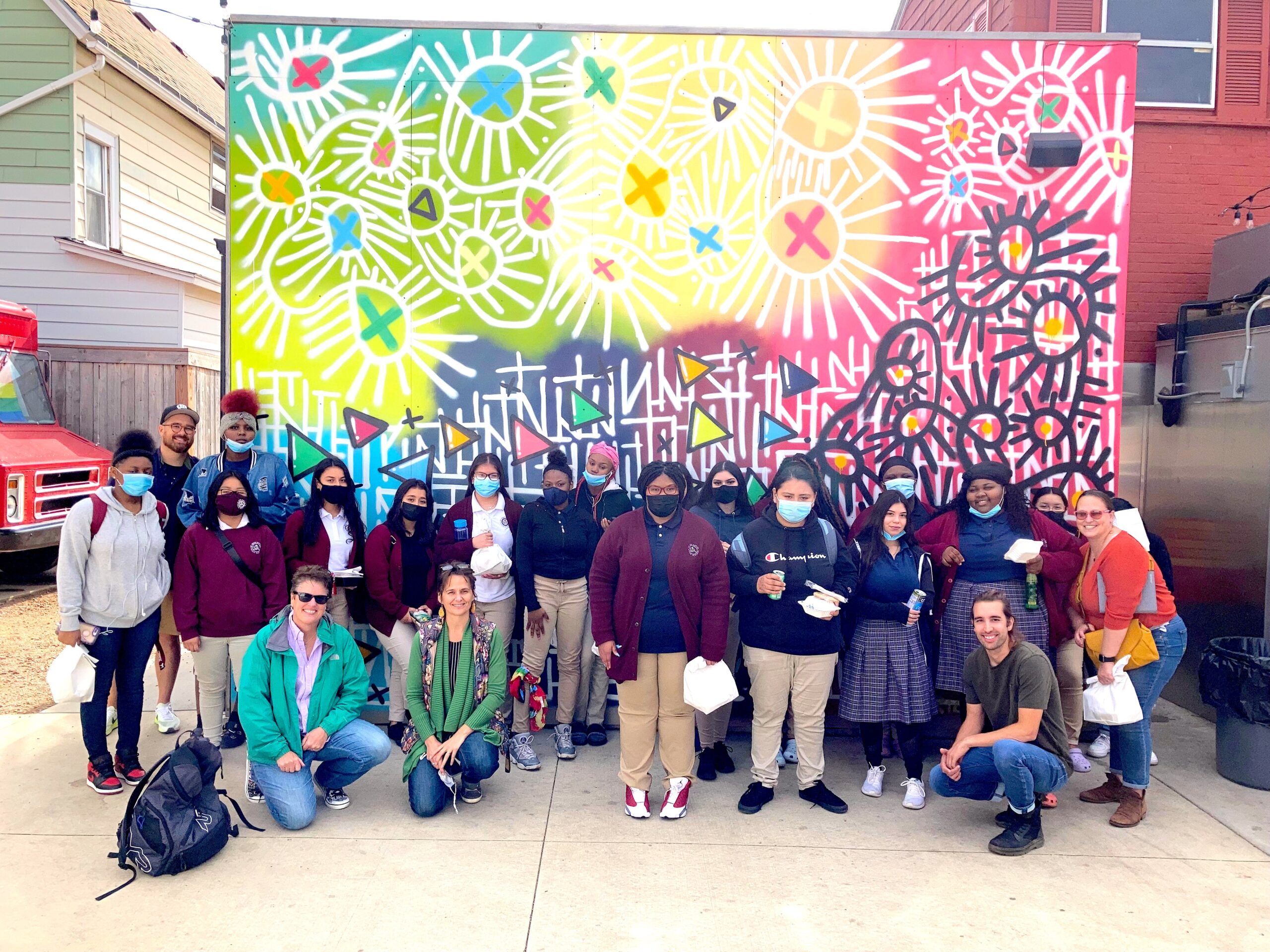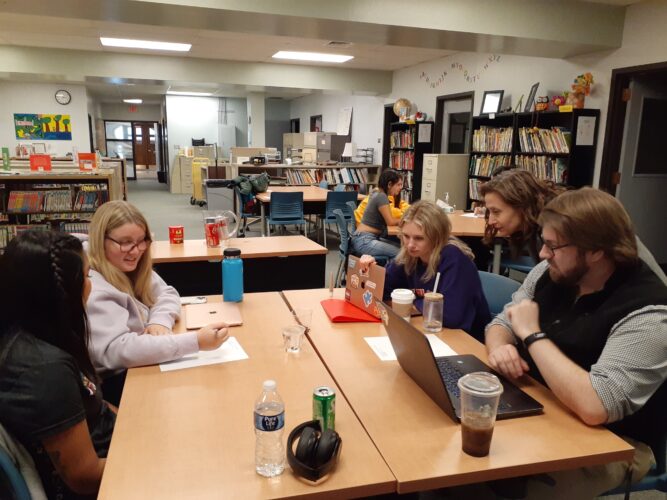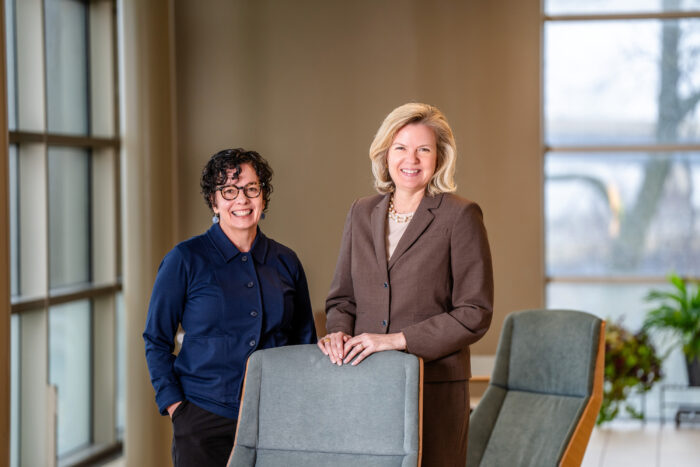There’s this thing about teaching history in a traditional classroom setting: The material has a tendency to lodge in minds with an air of far-off places and faint relevance. Or worse, it can fail to stick in the brain altogether — dates and facts in one ear and out the other, maybe lingering just long enough to help a student pass a quiz.
This ineffective approach to learning, known by some as banking, can plague teachers and students alike, says Dr. Melissa Gibson, associate professor of educational policy and leadership. Early in her career as a high school teacher, she recognized the phenomenon while working in the Chicago suburbs, rural Wisconsin, Los Angeles and even Guadalajara, Mexico. She also saw history lessons consistently drained of the contributions of people of color. Now, as a teacher educator and pedagogical researcher at Marquette, she’s leading the charge for alternative options.
Her latest big swing, MKE Roots: The Democratizing Local History Project, is forging fresh tools for Milwaukee classrooms. And with the support of an interdisciplinary Marquette faculty team, the emerging program landed a $1.27 million grant last fall from the U.S. Department of Education. With it, Gibson and partners are launching a three-year program in multiple K-12 schools, where social studies instruction will benefit from a vibrant educational ecosystem that emphasizes Milwaukee’s communities of color.
“My charge was this: I just want them to be curious, and to see themselves in the social studies.”
Dr. Melissa Gibson, principal investigator and associate professor
The project orbits around the idea of place-based learning within local settings where students live and learn. Fundamentally, it leverages partnerships with living people and interactions with landmarks outside the classroom, while featuring Black, Latinx and Indigenous history in which students can recognize their own roots. In this way, community leaders and entrepreneurs who are the fruit of the city’s diverse history become co-educators and models for students while engaging them in immersive settings.
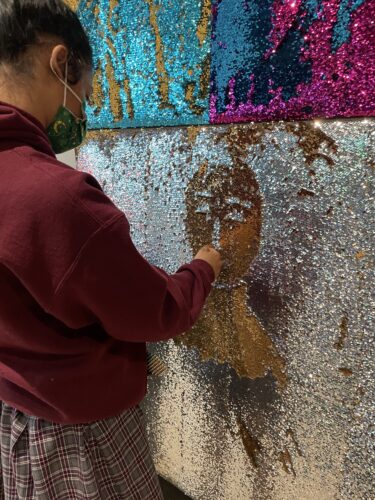
“What students are learning is a completely new way to see their city,” Gibson says. “My charge was this: I just want them to be curious, and to see themselves in the social studies.” Part of her framework stemmed from local storytelling initiatives and partnerships led by Dr. Robert Smith, Harry G. John Professor of History and co-principal investigator of MKE Roots, and Milwaukee cultural leader Adam Carr.
For several years, Gibson had been applying the place-based framework of MKE Roots in her own Marquette courses for future educators. Then, the pandemic sparked a rare opportunity to partner with Milwaukee’s St. Joan Antida High School.
At the all-girls Catholic school near downtown, administrators noticed an alarming slip in social studies performance when the school switched to remote learning in 2020. That fueled a desire for creative solutions to put students back on track. Thanks to some word-of-mouth connections between Marquette and St. Joan’s innovative new principal, Megan Otero, the high school resumed in-person classes in 2021 with a new credit-recovery elective, spearheaded by Gibson.
Initially dubbed Explore Milwaukee, that pilot course ran two semesters at St. Joan while garnering impressive results and broader interest, including from leaders of Milwaukee Public Schools. With Smith’s partnership, the pilot evolved into MKE Roots under the umbrella of Marquette’s Center for Urban Research, Teaching and Outreach, which he directs.
The key ingredient for success, Gibson says, is taking students off campus for immersive encounters — and sweetening the deal with food. At Zócalo Food Truck Park in Walker’s Point, for instance, they met co-owner and Milwaukee culinary mastermind Jesus Gonzalez. On the north side, students explored the Sherman Phoenix Marketplace, an entrepreneurial hub prioritizing Black-owned businesses.
“With a class like this, everything we are studying is so immediately relevant to their lives,” Otero says of her students, who represent 26 of Milwaukee’s 33 ZIP codes. “We’re talking about their neighborhoods. We’re talking about the streets they pass through when they come to school every day.”
Touring Walker’s Point, for example, many students went wide-eyed when they heard that the neighborhood’s earliest known Mexican immigrant arrived in the 1880s, less than 40 years after Wisconsin became a U.S. state. That lesser-known piece of historical DNA, paired with inspiring tastemakers like Gonzalez, can make a significant impression on young minds. And it can change how they participate as residents.
The project’s academic partners say many students of color are hungry for these stories as they confront racist narratives that prevail about their city and neighborhoods. “Through Milwaukee Roots, students have the opportunity to know themselves differently and to see themselves and their communities differently,” says Dr. derria byrd, assistant professor of education policy, a co-facilitator of the project. “Teachers also have the potential to be changed.”
On the heels of the federal grant, the staff, programming and rollout for MKE Roots is still taking shape, with St. Joan and Milwaukee Public Schools as committed partners. While the programming will be tailored to each school, Gibson plans to deliver a web-based service that maps out vital place-based learning sites across the city. Teachers in respective classrooms can leverage that resource in building their lessons plans. So, the program offers new tools, even when a school is limited in its ability to offer off-campus trips.
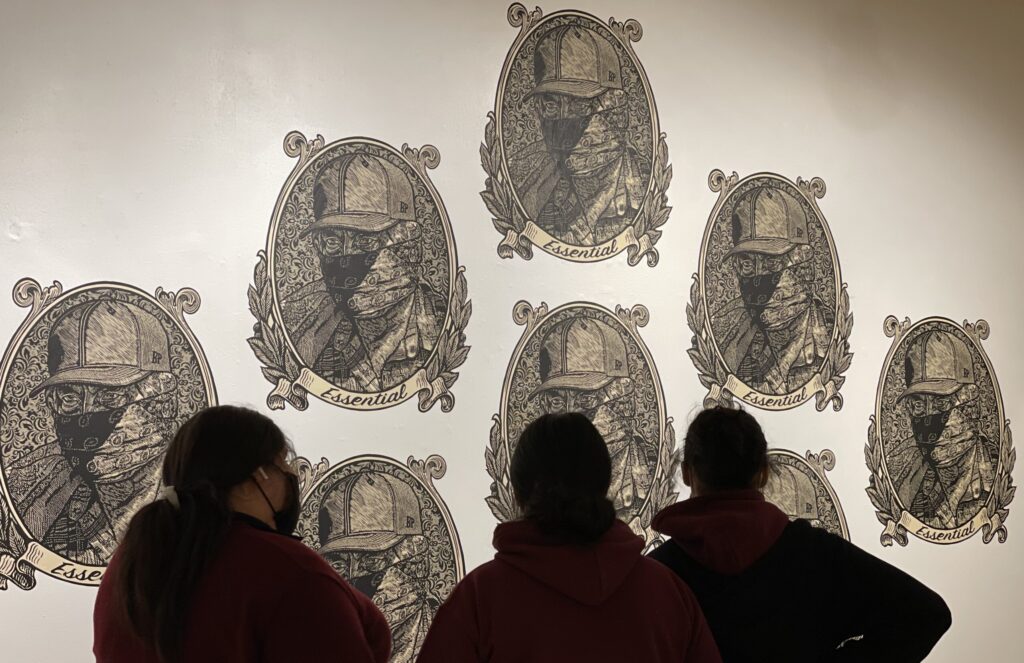
The Milwaukee sites will include institutions such as America’s Black Holocaust Museum, art installations and other landmarks in communities of color, paired with backstories and question guides. With input from area teachers, that resource will help build out what MKE Roots is calling a “pedagogical ecosystem” for K-12 classrooms that goes beyond depositing facts into student minds. The MKE Roots project will also fund and facilitate week–long professional development summer camps for interested educators that will allow them to visit key destinations and touchstones of the curriculum.
With an emphasis on community partners, the whole approach channels a broader mission within Marquette’s values to serve and empower its greater ecosystem. “We want our students, our staff and faculty to be part of our local communities,” says Smith. “We aren’t going to be the academics who parachute in and out.”
